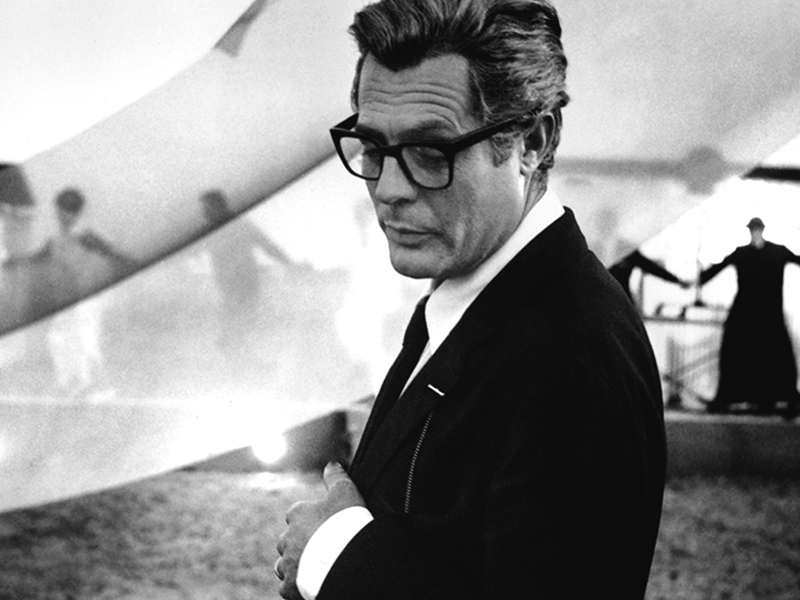核心概念
The author reflects on the transformation of cinema from an art form to mere "content," highlighting the impact of technology and commercialization on the cinematic experience.
摘要
In "Il Maestro" by Martin Scorsese, the author laments the devaluation of cinema as it transitions into being labeled simply as "content." Scorsese discusses how technological advancements and streaming platforms have democratized access to films but also raised concerns about the loss of curation and artistic integrity. He reminisces about a golden era in cinema where filmmakers like Fellini redefined the art form through creativity, collaboration, and a deep connection to humanity. Scorsese emphasizes the importance of preserving cinematic history and craftsmanship in an era dominated by algorithms and commercial interests.
自定义摘要
使用 AI 改写
生成参考文献
翻译原文
翻译成其他语言
生成思维导图
从原文生成
访问来源
harpers.org
Il Maestro, by Martin Scorsese
统计
As recently as fifteen years ago, the term “content” was heard only when people were discussing the cinema on a serious level.
The pictures that came to these shores thanks to distributors made for an extraordinary moment.
Federico Fellini became more than a filmmaker in the Sixties.
Fellini's absolute visual mastery began in 1963 with 8½.
Italian cinema has a long tradition of nonsync sound that began under Mussolini.
Fellini co-wrote Rome, Open City and Paisà.
La Strada was not well received in Italy but was a massive success worldwide.
His shooting script for La Strada ran to six hundred pages.
引用
"Curating isn’t undemocratic or 'elitist,' it’s an act of generosity."
"Fellini was as creative with sound as he was with images."
"The films of Rossellini played a vital role in Italy's redemption."
"La Dolce Vita expressed anxiety of the nuclear age."
"Bertolucci confessed La Dolce Vita was why he turned toward cinema."
从中提取的关键见解
by Martin Scors... 在 harpers.org 03-04-2024
https://harpers.org/archive/2021/03/il-maestro-federico-fellini-martin-scorsese/?utm_source=linnk.ai
更深入的查询
How can modern filmmakers balance commercial success with artistic integrity?
In today's film industry, balancing commercial success with artistic integrity is a complex challenge for modern filmmakers. One approach is to find a middle ground where the filmmaker's vision and creativity are maintained while also considering audience appeal and marketability. This can involve making strategic decisions during the filmmaking process, such as casting well-known actors to attract audiences or incorporating elements that resonate with current trends without compromising the core artistic message. Additionally, collaborating with producers who understand and support the filmmaker's vision can help navigate the delicate balance between artistry and profitability.
What role do streaming platforms play in shaping audience preferences for films?
Streaming platforms have significantly influenced audience preferences for films by providing easy access to a vast array of content. Through algorithms that recommend movies based on viewers' past choices, these platforms shape what audiences watch next, often leading to a homogenization of viewing habits. While this democratization of content has its benefits in terms of accessibility, it also poses challenges by potentially limiting exposure to diverse cinematic experiences. Furthermore, streaming platforms prioritize viewer engagement metrics over traditional measures like box office earnings, which can impact how films are produced and marketed to cater to specific audience tastes.
How does nostalgia for past cinematic eras influence contemporary filmmaking trends?
Nostalgia for past cinematic eras exerts a significant influence on contemporary filmmaking trends by inspiring filmmakers to revisit classic styles, themes, and storytelling techniques from earlier periods. This nostalgia often manifests in homage films that pay tribute to iconic directors or genres from the past while infusing them with modern sensibilities. By drawing inspiration from cinematic history, contemporary filmmakers seek to capture the essence of beloved classics while offering fresh perspectives that resonate with today's audiences. Additionally, revisiting past cinematic eras allows filmmakers to explore timeless themes and storytelling approaches that continue to captivate viewers across generations.
0
